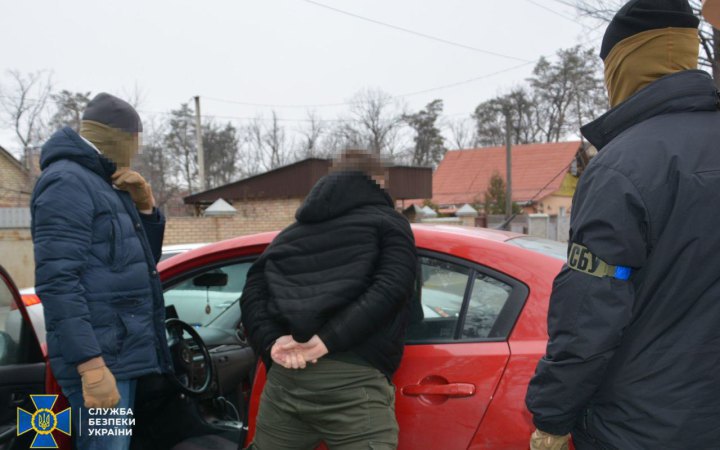The Security Service of Ukraine (SBU) has reported dismantling a criminal organisation in Kyiv that had been conducting information sabotage on the FSB's behalf. Its members forged on a large scale and shared pro-Kremlin narratives and provocative messages to destabilise the socio-political situation and fuel religious hatred in Ukraine.
As a result of comprehensive measures, the SBU exposed more than 15 members of the group, and four key figures have already been detained. Among them is one of the leaders of a Kyiv church of the Ukrainian Orthodox Church (Moscow Patriarchate), who was an agent of the Russian secret service. According to Detector Media's sources, the FSB network included members of the so-called Union of Orthodox Journalists (UOJ), who reported the searches this morning, as well as of the First Cossack TV channel.
This is currently one of the largest FSB networks that has operated in Ukraine since the beginning of the full-scale invasion. It had a clear hierarchy and division of functions, and was in constant communication with the largest Russian media outlets, which immediately picked up the "necessary" content.
According to the investigation, the Ukrainian network was coordinated by a cleric who has now been detained by the SBU. He was responsible for disseminating materials that incited sectarian hatred and justified an aggressive war against Ukraine.
He personally instructed the "performers" – other members of the criminal organisation who acted under the guise of "political experts" and prepared provocative posts and videos.
The prepared content was disseminated through dozens of controlled channels on Telegram and YouTube, as well as on Facebook pages and official websites of various dioceses of the UOC (MP).
Once the "paid-for" materials were published online, they were immediately "picked up" by Russia's central TV channels and online media to spread fakes about Ukraine.
By carrying out information attacks, Russia hoped not only to undermine the socio-political situation in Ukraine, but also to discredit the country in the international arena, especially in the eyes of its Western partners.
During the searches of the suspects' residences in Kyiv, the SBU seized mobile phones and computer equipment used in criminal activities in Russia's favour.
Based on the collected evidence, four detainees and 10 other members of the criminal organisation were served notices of suspicion under the following articles of the Criminal Code of Ukraine:
Part 2 of Article 111 (high treason committed under martial law);
Part 6 of Article 111-1 (collaboration);
Part 4 of Article 28, Article 255(1), (2) (creation and participation in a criminal organisation);
Part 3 of Article 161 (incitement to religious hatred and enmity committed by an organised group);
Parts 1, 2 of Article 436-2 (justification, recognition of the lawfulness, denial of the armed aggression of the Russian Federation against Ukraine).
The issue of choosing a measure of restraint in the form of detention is currently being decided. The investigation is ongoing to establish all the circumstances of the crime and bring the perpetrators to justice.
The suspects face life imprisonment.








